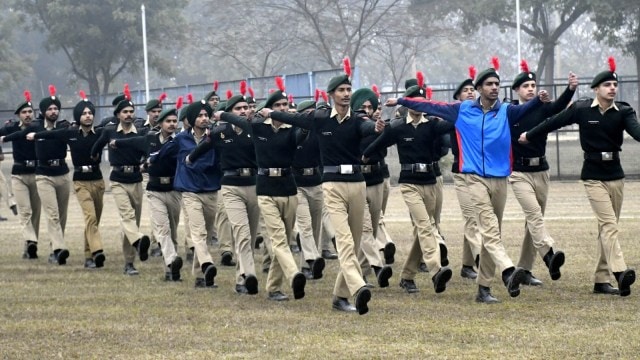
At a recent book-release function, the Chief of Defence Staff (CDS) made an interesting comment about the formulation of a National Security Strategy (NSS). He reportedly stated “When we talk about the National Security Strategy, I believe it consists of policy, processes, and practices to succeed. In our country, probably all three are addressed. The only thing missing is a written policy. I don’t know why people insist on that.” This statement, signalling a major shift in policy, merits analysis and debate.
The obvious questions are: Why have we been engaged in this exercise, with multiple drafts going to and fro, for the last two decades? More importantly, an apex-level Defence Planning Committee chaired by the National Security Advisor was set up in 2018 to formulate the NSS and National Defence Strategy. However, the status and progress of the much-publicised exercise are not known. Currently, we are managing with the cryptic and inadequate RM’s Operational Directive.
One is tempted to even ask if what the CDS said reflects his personal opinion or whether it was an official policy articulation — as it was in an academic environment. In this context, it bears reiteration that Manohar Parrikar, former defence minister, first announced a major shift in nuclear policy — jettisoning the “No First Use” doctrine, which was later retracted — by describing it, as his personal opinion in a seminar. The lengthy explanation by the CDS, and listing of recent successes like Balakot, indicate a desire to scuttle the ongoing endeavour to codify the NSS. He even cited Israel’s example, which doesn’t have a written document.
It is well known that most relevant nations, including the otherwise opaque China, not only promulgate an NSS but also publish periodic white papers. Even Pakistan has promulgated its first National Security Policy (2022-26). Neither Israel nor Pakistan can set the template for us, as our challenges are different and require a customised approach. Hence, the issue must be clarified post-haste.
A well-crafted NSS would foster a “whole of nation” approach and build synergy for harnessing comprehensive national power (CNP). It would also enable the setting of milestones for capability-building for modernisation, infrastructure and the Atma Nirbhar mission. The current status of defence planning is worrying and in transition as Defence Plans (five years) and Long Term Perspective Plans (15 years) have been discontinued. The new formats of the Integrated Capability Plan (10 years) and Defence Capability Acquisition Plan (5 years), are yet to stabilise. At the same, the government must be commended for enhanced traction for and visibility of defence modernisation.
The present system of reviews by the Parliamentary Standing Committee and Auditor General are sub-optimal. These need to be backed up with net-assessment and statistical tools both for periodic audits and, more importantly, for predictive and dynamic goal setting. The NSS, as a reference for peer review by think tanks, will hopefully reduce ambiguity and build meaningful accountability.
The most critical issue is related to operational clarity and ease of decision making. The NSS is relevant in a system where Army Commanders don’t even undertake a meaningful handing-over procedure – the process is brief and primarily ceremonial. As per informed opinion,while theatre responses during the Doklam crisis were commendable, strategic guidance was sketchy. The current model has delivered but that is largely due to the competence of the present leadership. The system suffers from over-centralisation and, in the long term, needs to be replaced by a de-centralised Directive Style of Command (DSOC).
The NSS could spell out clear-cut ends, ways and means, yet bank on delegation, synergy and operational freedom. At cutting-edge level, it will foster initiative, innovation and improvisation. The NSS is also a prerequisite for the operationalisation of theatre commands and transformation. A clearly spelt-out NSS will certainly breed audacious commanders like Field Marshal ‘Sam’ Manekshaw, Lt Gen Harbaksh Singh and Lt Gen Sagat Singh.
As India moves into Amrit Kaal, it is time to discard hesitation and ambiguity. Every NSS has a classified portion and that can certainly take care of confidentiality. If required, targeted ambiguity can be retained for messaging. Concurrently, it is necessary to move to informed debates based on NSS rather than daily rabble-rousing Twitter campaigns to regain PoK and Aksai Chin.
The writer is a former Army Commander and State Information Commissioner
Click here for real-time updates on the Lok Sabha Election Results 2024


